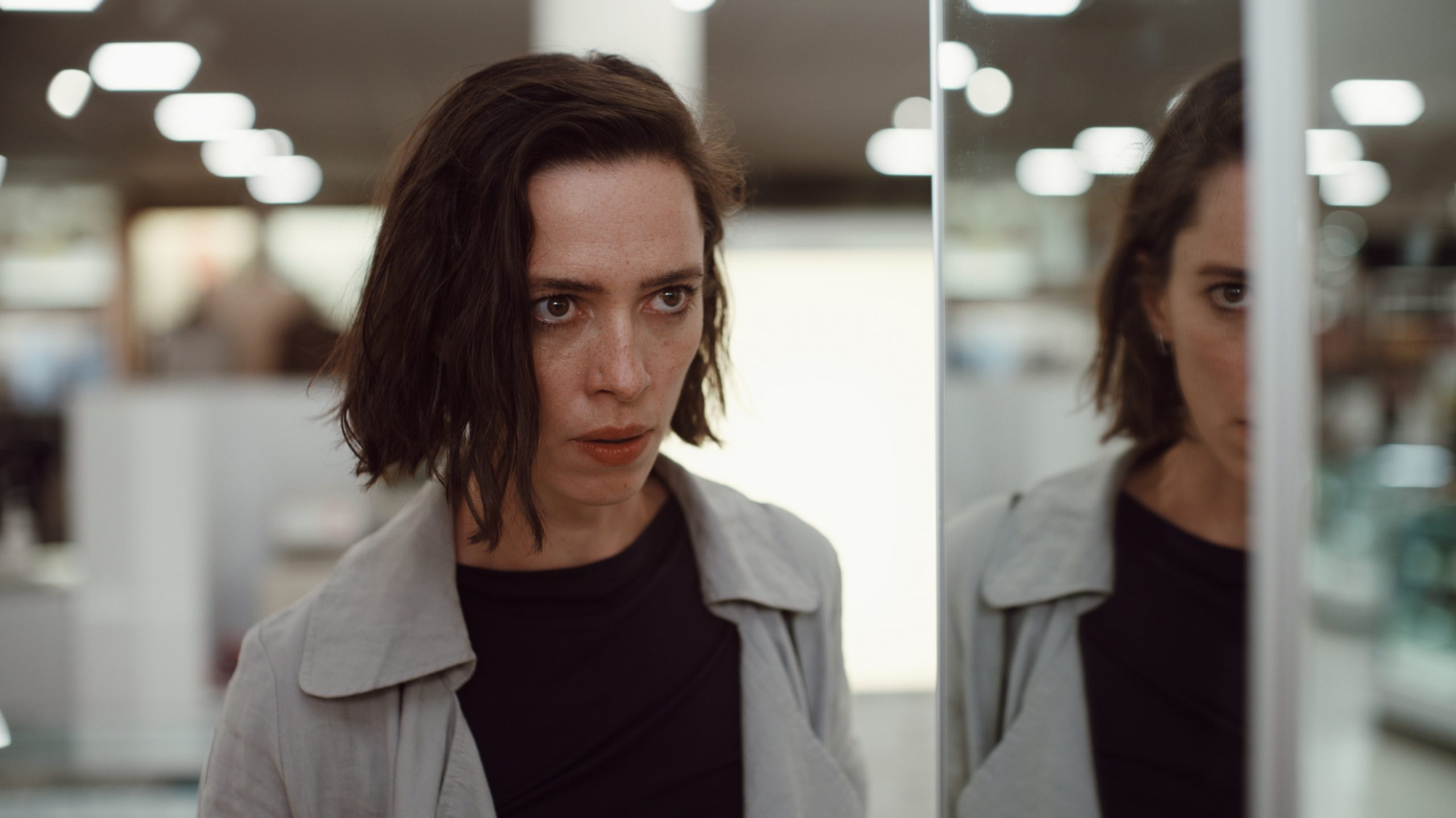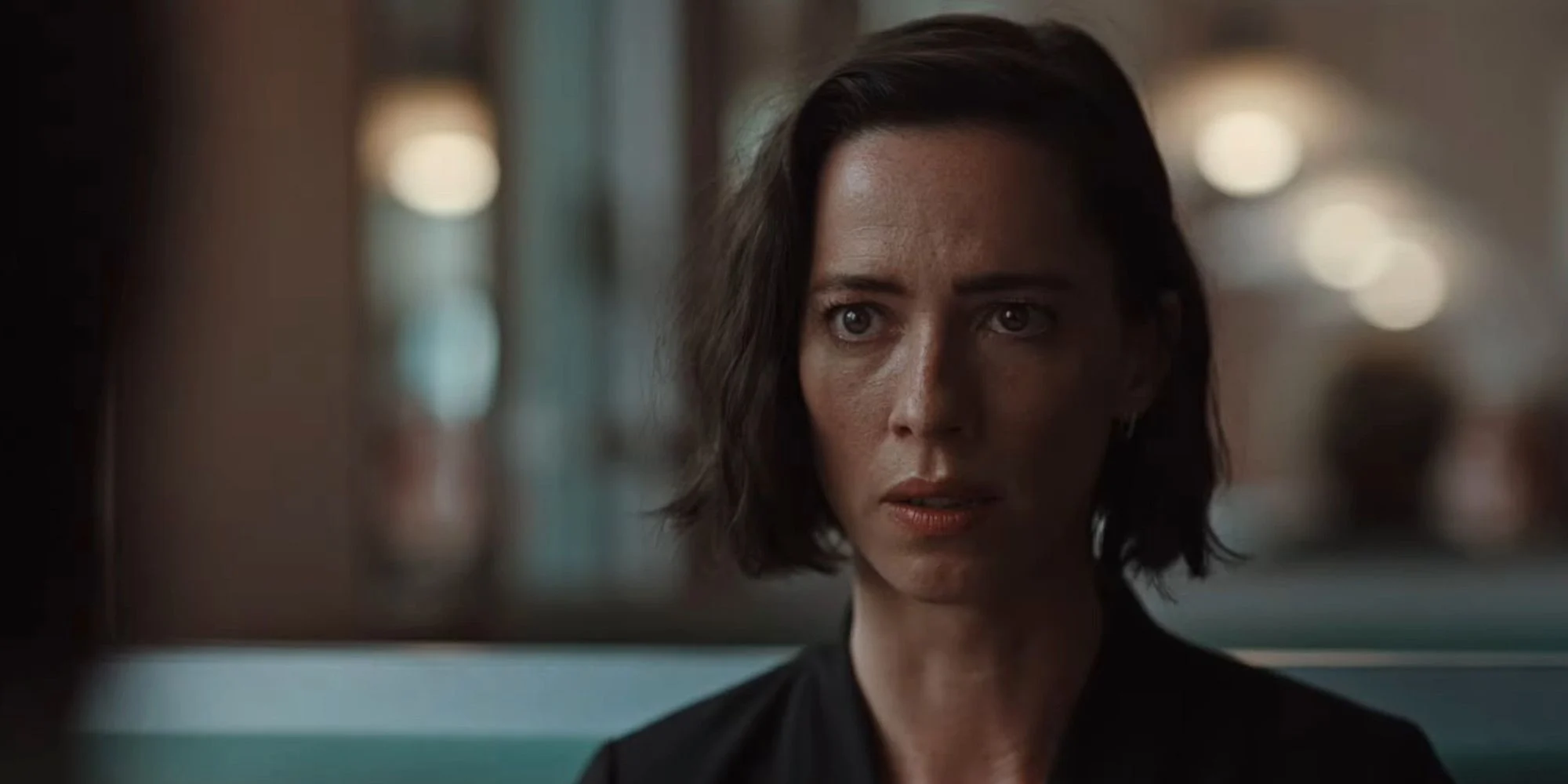
★★★★☆
This psychological thriller, starring Rebecca Hall, explores guilt, motherhood and trauma in unexpected ways.
In Resurrection, Rebecca Hall plays Margaret, a successful businesswoman and a mother. She’s the cool kind of mum, she’s relaxed but also fiercely protective of her daughter Abbie (Grace Kaufman). But Margaret’s seemingly perfect life starts to break down as a mysterious man, David (Tim Roth), shows up to taunt her.
Trauma is a common theme in horror. You could probably even make a very convincing argument that all horror films are about trauma, physical or emotional. Resurrection doesn’t attempt to reinvent the wheel, but it does try to approach it from a new perspective. Its focus is tight and for the most part, Resurrection isn’t really a horror film at all, but certainly morphs into one by the end.
The film plays out much more like a psychological thriller; you’re constantly questioning whether Margaret is truly seeing David everywhere or if he’s just a figment of her imagination and her past trauma coming back to haunt her. It’s seemingly triggered by Abbie’s upcoming departure for college and an accident she gets into. These events combined push Margaret’s motherly, protective instincts to an extreme.

Writer-director Andrew Semans refuses to fully answer the questions Resurrection poses. By the end, you’re still not entirely sure which parts were real and which were fiction, created by Margaret’s fractured mind. It’s equally frustrating and exquisite and leaves the viewer to make up their own mind about the film.
Hall, an under-appreciated actress, does a tremendous job at portraying Margaret’s declining mental state. Her performance is similar to Elisabeth Moss in The Invisible Man, fusing fury and desperation in equal measure, creating a whirlpool of terror that comes from within Margaret rather than the outside threat. Tim Roth is also pleasantly slimy and vaguely threatening as David, pushing the film’s ambiguous nature even further.
David isn’t a threat because of what he does, he’s one because he exists. We slowly find out exactly what happened between the two characters and the revelation is surprisingly brutal and disturbing. Delivered in a single take scene by Hall, it’s impossible to know if she’s telling the truth because what she describes is so horrifying, you hope it isn’t. Hall nails the scene, keeping her voice steady, with only a hint of a tremble, her eyes glassy as she recounts her trauma.
Resurrection doesn’t offer many surprises, but it is an effective take on gaslighting. Semans eases the audience into the terror and it’s like the popular apologue about boiling frogs. They’re eased into the water which is then slowly boiled so the frogs don’t realise they’re being boiled alive until it’s too late. We’re not quite sure what’s happening or just how brutal Resurrection is until it’s an almost constant attack on our senses and emotions.

If something doesn’t work in Resurrection, it’s perhaps the dialogue. There are huge dumps of exposition and while the talented cast makes it work well enough, it’s all a little clumsy at times. Resurrection is also yet another film about a woman’s unravelling and descent into their own personal hell and while there is catharsis at the end, there is also a lot of suffering on the way there.
Resurrection screens at Sundance Film Festival London this weekend.



